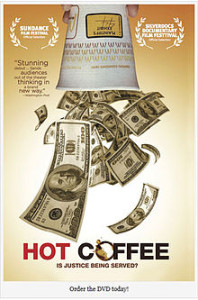 Social media and online news sources are providing trial lawyers and victims’ rights activists with new opportunities to ensure that the public is informed and not misled by tort “reform” and big business propaganda.
Social media and online news sources are providing trial lawyers and victims’ rights activists with new opportunities to ensure that the public is informed and not misled by tort “reform” and big business propaganda.
The McDonald’s hot coffee case was actively lauded by tort “reformers” as an example of all that was wrong with the American civil justice system. The actual facts of the case were inaccurately reported and largely omitted, and the case became the “most widely misunderstood story in America.”
For years, there was little that trial lawyers or victim rights activists could do to debunk the myths behind the hot coffee case and its famous plaintiff, Stella Liebeck. The story became part of American culture and was spoofed on popular shows such as Seinfeld, Jay Leno and Futurama.
More recently, however, with the documentary Hot Coffee and attention from people like Joseph Lamour on Upworthy, the other side of the McDonald’s coffee case story is slowly trickling out. Upworthy’s video, with the tagline, “Share this if you wish the world wouldn’t get so carried away sometimes,” contains a thoughtful summary of the history of the case and the way it was misreported in the media.
At 5:15 on the video, photographs of Liebeck’s horrific third-degree burns can be seen (warning: graphic images). It is doubtful that the tort “reform” movement could ever have been as effective in promulgating the McDonald’s coffee case myths had the full story been available to the public. With ever-increasing social media use and public thirst for independent news, there is hope that tort victims and their advocates will be able to share the truth of their experiences with the public.
Watch the video here: http://www.upworthy.com/ever-hear-about-the-lady-that-spilled-coffee-on-herself-at-mcdonalds-then-sued-for-millions
Contributed by Laura Hillyer, an OTLA Director and lawyer practising with Martin & Hillyer Associates in Burlington, Ont.
